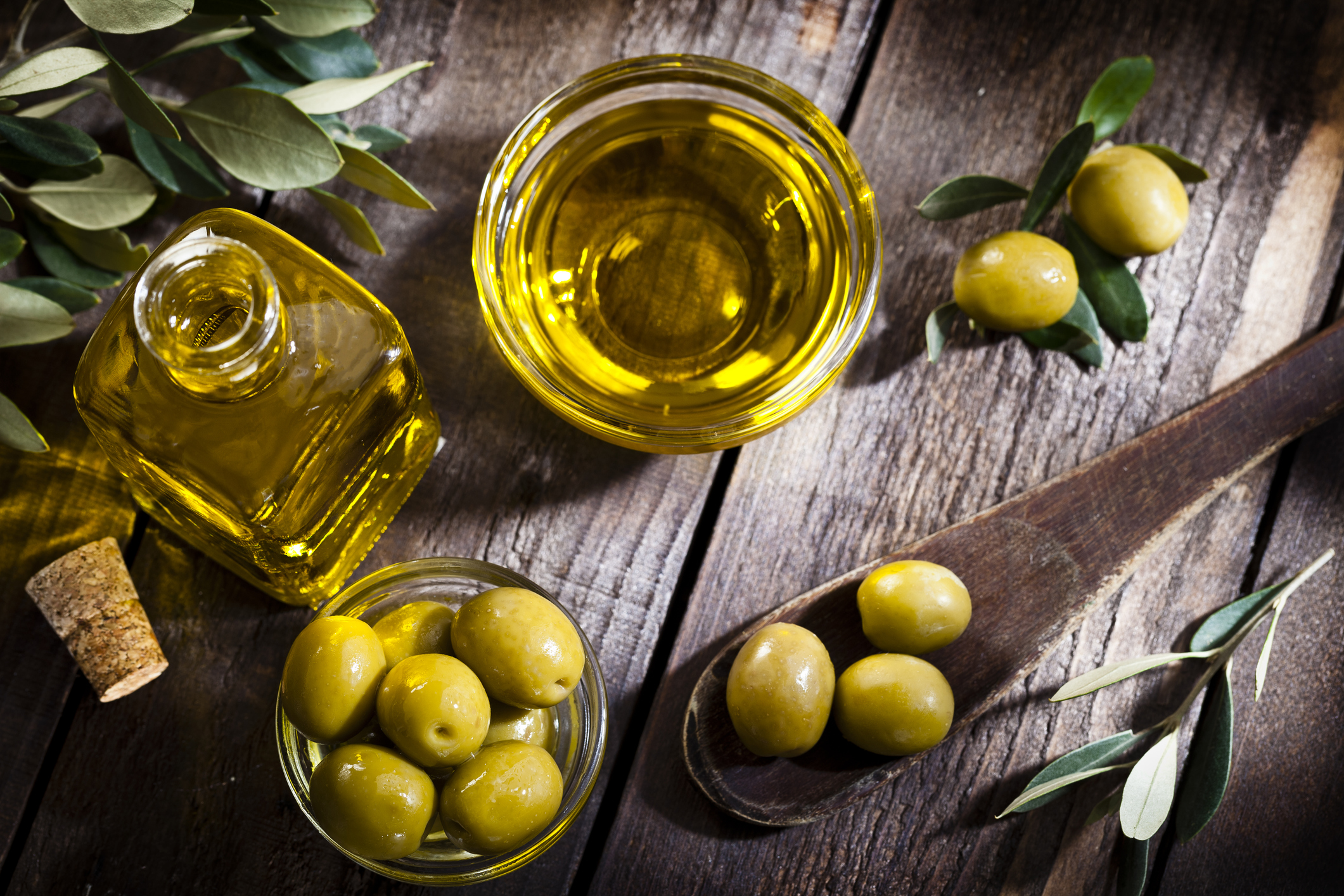This week our guest blogger, Dr. Mark Crapo, explains the history of and the many benefits of olive oil.
Olive’s scientific or botanical name is Olea Europaea, which means, “oil of Europe.” Olive is an evergreen tree that originally comes from the Mediterranean and Middle Eastern region, particularly Syria and Greece. Today these trees are grown all over Europe and Asia as well as in North and South America and even Australia. The tree grows to almost 30 feet tall and takes 15 years before it will bear fruit. Olive oil is obtained by crushing or pressing the ripe fruit of the tree.
The Greeks believed the goddess, Athena, gave them the gift of olive to use for food, medicine, perfume as well as for heat and light. She planted the original tree on a hill known as Acropolis, and they named their city, Athens, after her. And of course, the victory wreath worn by Olympians was made from olive leaves and branches.
In recent years olive oil has become known as one of the healthiest oils to use in the kitchen, with numerous benefits to many organ systems; it’s an essential part of the Mediterranean Diet. Historical evidence shows olives and olive oil has been used in cooking, cosmetics, and even medicinal remedies for at least 4,500 years! Some of the earliest cosmetic recipes come from ancient Egypt.
Olive oil is used in the formulation of a variety of products including massage oil, body soaps, detergents, home cleaning products, shampoo and conditioner, shaving products, makeup and makeup removers. One of its original uses that is the same today is as a skin conditioner.
Olive oil contains Vitamins A and E, and other antioxidants, ranging from Flavanoids to Hydroxtryosol. It also has a number of fatty acids, these include; Oleic Acid, a monounsaturated omega-9 fatty acid, Linoleic Acid, a polyunsaturated omega-6 fatty acid, Stearic Acid and Palmitic Acid, saturated fatty acids and Alpha-Linolenic Acid, a polyunsaturated omega-3 fatty acid.
Together, these all help to repair and renew skin that has been damaged from overexposure to sun, environmental pollution and other modern-day air hazards, and even junk food. These antioxidants have the natural ability to stimulate cells and return skin to a firmer, smoother, and healthier state.
One component of olive oil that the human body doesn’t produce is Linoleic acid. This prevents water from evaporating, making olive oil the perfect natural lubricant; a daily moisturizer that can penetrate deep into the skin so that the moisturizing effects last much longer. Contrary to what might seem logical, this oil actually helps prevent clogged pores and thus, blackheads and pimples.
Olive oil can be used in formulas to help treat stretch marks and diaper rash and also to make shaving creams, oils, and aftershaves. One of its original uses that is still used today is to soothe, smooth and moisturize dry, rough, cracked feet and other skin tissue.
The anti-bacterial and anti-fungal properties come from the many polyphenols. These also promote more manageable, healthier hair. Olive oil helps to cleanse the scalp as well as the hair and has been used to prevent premature graying of the hair while also promoting hair growth.
Olive oil continues to be a well-loved, beneficial and safe ingredient.
Many pure haven products contain olive oil and offer its beneficial effects. Here are a few:
refresh exfoliator
dream cream
sugar body scrub
breathe pure vapor rub
kids soothing chest rub

